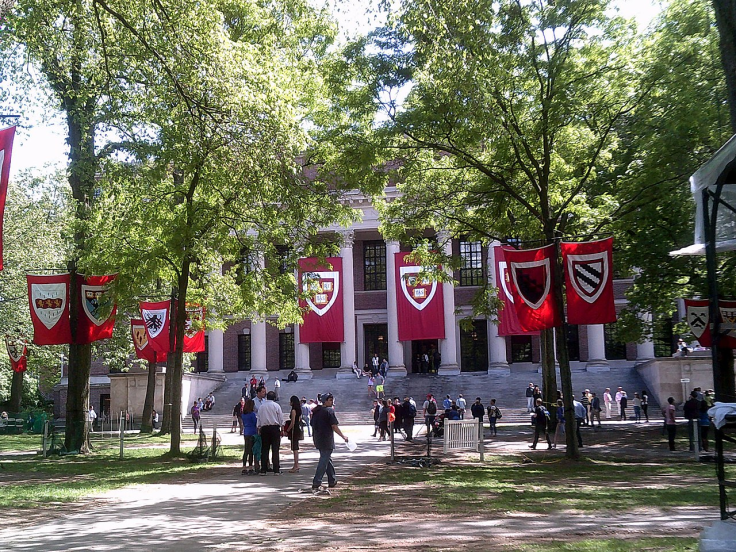Harvard Faces Another $1 Billion Federal Funding Cut as Tensions with Trump Administration Escalate
By
CAMBRIDGE, MA — In a dramatic escalation of its ongoing feud with Harvard University, the Trump administration has announced plans to slash an additional $1 billion in federal grants and contracts for health research, intensifying a high-stakes battle over institutional oversight and academic independence. This move follows a previous freeze of $2.2 billion in multiyear grants and $60 million in contracts, signaling a deepening rift between the White House and one of America's most prestigious universities.
The latest funding cut, reported by The Wall Street Journal, targets Harvard's health research programs, a cornerstone of its contributions to medical advancements in fields like cancer, Alzheimer's, and infectious diseases. The Trump administration's actions stem from Harvard's refusal to comply with policy demands, including reforms to its curriculum, admissions processes, and diversity, equity, and inclusion (DEI) initiatives. These demands were outlined in a controversial letter from the administration's Task Force to Combat Anti-Semitism, which Harvard publicly rejected, prompting swift retaliation.
A Battle Over Academic Freedom
Harvard's defiance has positioned it as a symbol of resistance against what critics, including former Harvard President Larry Summers, call a "punitive" and "unlawful" attack on academic freedom. Summers told CNN that the funding freeze is a "frontal" assault, arguing that universities should not bow to government demands that overstep legal boundaries. Harvard President Alan Garber echoed this sentiment, stating, "The University will not surrender its independence or relinquish its constitutional rights."
The White House, however, frames its actions as a necessary response to alleged antisemitism on campus and a broader push to reform elite universities. The Task Force's demands, which included auditing programs for bias and discontinuing DEI practices, have sparked debate about the balance between federal oversight and institutional autonomy.
Real-World Impacts on Research and Students
The funding cuts are already disrupting critical research at Harvard. Dr. Donald E. Ingber, founding director of the Wyss Institute for Biologically Inspired Engineering, received stop-work orders on two contracts, while Sarah Fortune, a professor at Harvard's School of Public Health, saw her tuberculosis research halted. An ALS researcher, recently honored with the National Medal of Technology and Innovation, also lost funding, underscoring the human cost of the standoff.
Harvard's $53.2 billion endowment offers some financial cushion, but experts warn that accessing it is complex. Approximately 80% of the endowment is restricted for specific purposes like scholarships and faculty chairs, and much of the unrestricted portion is tied up in illiquid assets.
The administration has also threatened Harvard's tax-exempt status and its ability to host international students, further raising the stakes. The Department of Homeland Security demanded detailed records on foreign student visa holders, accusing Harvard of fostering a "hostile learning environment" for Jewish students, though specific incidents were not cited.
A Broader Assault on Higher Education
Harvard is not alone in facing White House pressure. Columbia University lost $400 million in federal funding after initially complying with similar demands, only to later resist further changes. Cornell and Northwestern universities have also seen funding cuts of $1 billion and $790 million, respectively. The Trump administration's actions, which include plans to dismantle the Department of Education, have drawn comparisons to the McCarthy era, with university leaders warning of a threat to America's academic and economic leadership.
Jewish students at Harvard have voiced concerns that the administration's actions may not protect them as intended. An open letter signed by over 100 students stated, "Using Jewish students to gut federal support for universities does not make us feel seen, valued, or safe. It turns us into pawns in a broader political agenda."
What's Next for Harvard?
As the standoff continues, Harvard is preparing for potential layoffs at its Medical School and scaling back operations at the School of Public Health. The university has also filed a lawsuit through its faculty chapter of the American Association of University Professors, challenging the administration's demands as an overreach of federal authority.
The outcome of this battle could reshape the relationship between the federal government and higher education. For now, Harvard remains defiant, but the mounting financial and political pressures signal a challenging road ahead. As Baum noted, "Even with its wealth, Harvard doesn't have an indefinite amount of money."
© 2025 University Herald, All rights reserved. Do not reproduce without permission.








